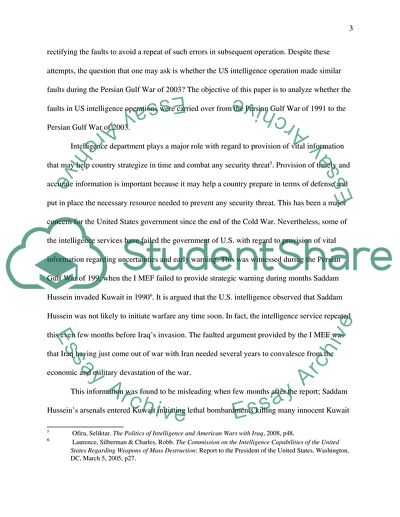Cite this document
(“Faults in U.S. Intelligence Operations Carried over from Persian Gulf Assignment”, n.d.)
Faults in U.S. Intelligence Operations Carried over from Persian Gulf Assignment. Retrieved from https://studentshare.org/history/1780176-were-faults-in-us-intelligence-operations-carried-over-from-persian-gulf-war-i-1991-to-persian-gulf-war-ii-2003
Faults in U.S. Intelligence Operations Carried over from Persian Gulf Assignment. Retrieved from https://studentshare.org/history/1780176-were-faults-in-us-intelligence-operations-carried-over-from-persian-gulf-war-i-1991-to-persian-gulf-war-ii-2003
(Faults in U.S. Intelligence Operations Carried over from Persian Gulf Assignment)
Faults in U.S. Intelligence Operations Carried over from Persian Gulf Assignment. https://studentshare.org/history/1780176-were-faults-in-us-intelligence-operations-carried-over-from-persian-gulf-war-i-1991-to-persian-gulf-war-ii-2003.
Faults in U.S. Intelligence Operations Carried over from Persian Gulf Assignment. https://studentshare.org/history/1780176-were-faults-in-us-intelligence-operations-carried-over-from-persian-gulf-war-i-1991-to-persian-gulf-war-ii-2003.
“Faults in U.S. Intelligence Operations Carried over from Persian Gulf Assignment”, n.d. https://studentshare.org/history/1780176-were-faults-in-us-intelligence-operations-carried-over-from-persian-gulf-war-i-1991-to-persian-gulf-war-ii-2003.


